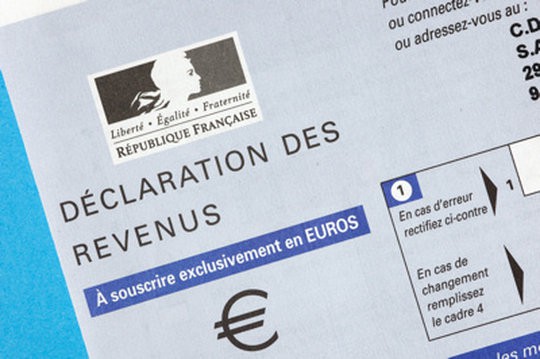So in France you receive a tax bill for the current year based on what you were assessed the previous year. You then pay that bill in payments so that by the time that year’s taxes are due, you will ostensibly be “ahead of the game.” Of course, this depends on your income stability. If you make a lot more money this year than last year, then those payments are simply a down payment on your future tax bill. Conversely, if you are unemployed, you will still be paying into the system at the rate you did when you were employed.
Wait, Stephen, I thought you said I didn’t have to pay taxes? You’re right, as a visitor, I don’t have to pay taxes, but I still have to file and declare taxes.
But the French government didn’t do their sums correctly, and I had to do a bit of correspondence with them to fix it. In this blog post I told you that they recognized this error but they ended up only removing some of the amount, so I had to write another letter explaining that I didn’t owe anything. It only took four months and two letters. 🙂
But the person who issued my corrections didn’t update my file, because I got a notice to start paying taxes based on last year’s amount…which I got dismissed. So I had to draft another letter explaining (with photocopies of the dismissals) that not only did I not owe taxes for the 2014 taxes, but I did not owe advance payments for 2016, as I wouldn’t have any tax liability in 2015 either. I only moved to my right-to-work status in January so next year I will actually owe something.
Remember in dealing with the French: be patient, have your documentation to the Nth degree and backups, and trust the process. The fastest road to frustration is to imagine you are entitled to anything.
I expect to get a dismissal of my current tax bill. I’ll let you know if something else happens.
Did you enjoy this article? TAIP is 100% reader-supported through tipping. If you want to leave us a tip of any amount it would be highly appreciated. These tips help support our efforts to keep TAIP an ad-free environment. Just as at a cafe, the tips are split evenly among the team.


I’ve been reading your blog for a while now and have to say I enjoy this glimpse into “the system.” My husband and I hope to move to France one day. Our situation will be different than yours (retirement or, fingers crossed, the arts visa), but it’s nice to see someone’s look into the reality of dealing with all the bureaucracy.
What is the fiscal year in France? When are the filings supposed to happen?
Thanks.
FY = Jan 1 – Dec 31
Filings for business taxes are in April-May, personal in May-June.
Pingback: French and US Taxes | The American in Paris
Pingback: French Tax Season Concludes | The American in Paris
I couldn’t find any literature in the French tax website that mentioned that visitors on a long-term visa didn’t have to pay taxes. Any help to point out to the source? Thanks!
Lucas there’s no source to point to because no one is saying that long-term visa holders “don’t have to pay taxes.”
Let me be clear, you must file taxes.
Whether you pay taxes is entirely due to your own situation.
Given that most people pay taxes on their income, if your income is not earned in France, it is reported, but not taxed, ostensibly because you’ve already been taxed for it in your home jurisdiction (and can prove it).
But some long-term visitors may own real estate in France and may indeed gain some money that way and yes, they would have to pay taxes.
Once again, the headline points to the reality: if you’re a fiscal resident of France you have to ***file*** taxes, period. Whether you ***pay*** taxes is an entirely personal issue, as everyone’s tax filings will be different.
I would like to follow up on your post.
Scenario: American living in France full-time (fiscal resident) with a Long-Term Visitor’s Visa and working as a 1099 independent contractor for a USA company (no French presence for company). As a 1099 contractor, no taxes are withheld from pay in USA. Would taxes be paid to French government and then claimed as foreign tax credit in USA? Or would taxes be paid to IRS and then reported on French income declaration? Thank you in advance.
Judy
I can’t give advice on your individual tax situation. I would defer to your accountant. If you don’t have one I’m happy to connect you with one.
The scenario you propose would invalidate your visitor visa as you are now asserting that you are “working in France” which is not permitted by your visitor visa.
I totally understand that personalized advice is a no-no. However, I am confused because I read that remote work IS allowed on visitor’s visa. Also read your above reply dated Feb 7th, which would indicate that the tax would be paid in USA.
Yes, remote work is allowed, but if you declare income in France from work, then you’ve now taken what is an acceptable practice, working remotely, being paid in another country, and creating a weird hybrid, working remotely, being paid in France.
To clarify, my position is: if you wish to work remotely, get paid in that country and file taxes in that country. You will still have to file taxes in France, in which you include your worldwide income, which will include your already-taxed-and-paid-for income from America.